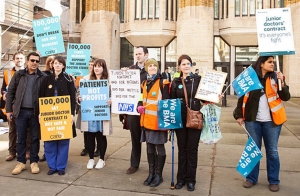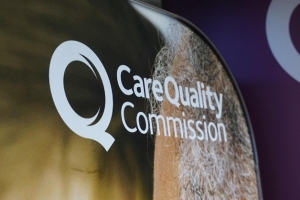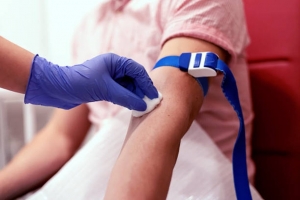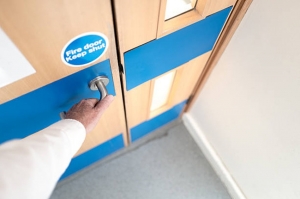NHS to Add Menopause Screening to Routine Health Checks from 2026
For the first time, menopause screening will become part of routine NHS health checks in England. From next year, women aged between 40 and 74 attending the five-yearly appointments will be asked about symptoms linked to menopause, in a move aimed at improving access to advice, treatment and emotional support.
The update will allow GPs and pharmacists to identify women who may benefit from hormone replacement therapy (HRT), counselling, or medication to manage symptoms such as hot flushes and mood changes. Health Secretary Wes Streeting said the change will help tackle the silence surrounding menopause, ensuring women are no longer left to cope alone with what can be debilitating symptoms.
Around three-quarters of women experience some level of discomfort during menopause, which can bring physical and cognitive challenges such as fatigue, joint pain and brain fog. Women’s Health Ambassador Dame Lesley Regan welcomed the decision, saying it will help normalise conversations about menopause and ensure more women get the help they need.
However, campaigners warned that attendance rates for NHS health checks remain low in some communities, meaning many could miss out on this new support. Experts also stressed the importance of training staff and improving outreach, particularly among ethnic minority and lower-income groups.
NHS Recommends Daily Vitamin D Supplements for All Brits This Winter
As the darker months set in and daylight hours shrink, the NHS is reminding everyone across the UK to take a daily dose of vitamin D from now until March. With limited sunlight during autumn and winter, our bodies struggle to produce enough of this vital nutrient, which plays an essential role in keeping bones, teeth and muscles strong.
Health experts advise adults and children over the age of one to take a 10-microgram (400 IU) vitamin D supplement each day. Babies should also receive between 8.5 and 10 micrograms daily, unless they consume more than 500ml of infant formula, which already contains added vitamin D. The NHS stresses that maintaining sufficient levels helps support not just physical health but also energy and overall wellbeing.
A lack of vitamin D can cause symptoms such as fatigue, muscle weakness and bone pain, and in more severe cases may lead to conditions like rickets in children or osteomalacia in adults. Because sunlight exposure is limited in the UK during winter, supplementation is considered a safe and effective way to prevent deficiency.
For those wanting to boost their intake naturally, vitamin D can also be found in foods such as oily fish (like salmon and sardines), red meat, liver, egg yolks and fortified products including cereals and fat spreads. Supplements are widely available in pharmacies and supermarkets.
Resident Doctors Announce New Five-Day Strike After Talks Collapse
The British Medical Association (BMA) has confirmed another round of industrial action in England after pay negotiations with the government once again failed. Despite ongoing talks through the summer and early autumn, no agreement was reached, prompting resident doctors — formerly known as junior doctors — to stage a five-day strike from Friday, 14 November. This will mark the 13th walkout since the dispute began in March 2023 and is expected to cause widespread disruption across hospitals.
Resident doctors make up almost half of the NHS medical workforce, covering roles from newly qualified doctors to those with up to ten years of experience. During the strike, they will withdraw from both emergency and routine services, forcing senior clinicians to step in. Previous strikes have already led to thousands of postponed operations and appointments despite NHS efforts to maintain services.
Dr Jack Fletcher, chair of the BMA’s resident doctors committee, said the union had engaged “in good faith” but accused the government of failing to act in the interests of patients and staff. The dispute, which began over pay erosion since 2008, has also expanded to cover training opportunities, career progression, and work-related costs.
Health Secretary Wes Streeting condemned the strikes as “reckless,” claiming the BMA had rejected efforts to improve working conditions and expand training places. NHS leaders have warned the action will add further strain to an already pressured winter period.
CQC Chief Steps Down Amid Leeds Maternity Inquiry
Sir Julian Hartley has resigned as chief executive of the Care Quality Commission (CQC), days after an independent investigation was launched into maternity care at Leeds Teaching Hospitals NHS Trust. Having led the trust for a decade, Sir Julian said his continued role at the CQC was “incompatible” with the discussions surrounding the inquiry. His departure follows pressure from families affected by substandard maternity care who had called for him to step down.
The inquiry, ordered by Health Secretary Wes Streeting, will look into repeated failings at Leeds General Infirmary and St James’ University Hospital. Mr Streeting said the investigation aimed to uncover what had “gone so catastrophically wrong” and stressed the need to rebuild public confidence in the regulator.
Families affected by poor care, including Amarjit Kaur and Mandip Singh Matharoo, whose daughter Asees was stillborn in January 2024, welcomed the resignation, questioning how Sir Julian’s appointment had been approved given his history at Leeds. Whistleblowers also expressed relief, citing years of unsafe conditions under his leadership.
In his statement, Sir Julian apologised to families who suffered harm and pledged full cooperation with the inquiry. CQC chair Professor Sir Mike Richards acknowledged the resignation as a significant loss but agreed it was necessary to maintain public trust. The Leeds probe becomes the fifth major investigation into maternity failings at an NHS trust since 2013.
Blood Test Shows Promise for Early Cancer Detection
A groundbreaking blood test capable of identifying more than 50 different cancers could significantly accelerate diagnosis, according to new findings from a North American study. The test, known as Galleri and developed by US firm Grail, analyses fragments of tumour DNA circulating in the bloodstream. In trials involving 25,000 adults across the US and Canada, almost one in 100 received a positive result, with cancer confirmed in around 62% of those cases.
Researchers found that over half of the cancers detected were at an early and more treatable stage. Importantly, three-quarters of those cancers currently have no screening programme, including ovarian, pancreatic, and liver cancers. The Galleri test also accurately identified the source of cancer in nine out of ten cases, while ruling out cancer correctly in more than 99% of negative tests.
Lead researcher Dr Nima Nabavizadeh, from Oregon Health & Science University, said the technology could “transform” cancer screening by spotting tumours when treatment has the best chance of success. When used alongside standard NHS screening tests, detection rates rose seven-fold.
However, experts have urged caution until long-term data is available. Professor Clare Turnbull of the Institute of Cancer Research stressed that only large-scale trials—such as the ongoing NHS study involving 140,000 participants—will confirm whether earlier detection leads to fewer cancer deaths.
NHS Waiting List Rises Again as Backlog Targets Come Under Pressure
England’s NHS waiting list has grown for the third consecutive month, prompting fresh concerns that the government’s key pledge to reduce treatment delays is slipping out of reach. Figures show that by the end of August, 7.41 million people were waiting for routine procedures, up from 7.36 million in May. The proportion of patients waiting longer than the 18-week target has also increased, despite renewed efforts to tackle the backlog.
The government has promised to restore the 18-week standard by the end of this parliament, a goal last achieved a decade ago. Meeting this would require 92% of patients to begin treatment within the target time, but currently only 61% do so. Analysts say progress made earlier in the year has faltered, with waits lengthening again over the summer months.
Dr Francesca Cavallaro from the Health Foundation warned that current trends suggest the government will fall short of its pledge, calling the scale of the challenge “significant.” Professor Peter Friend of the Royal College of Surgeons said underinvestment and staff shortages continue to hinder recovery, urging “urgent action” to improve infrastructure and morale.
Health Minister Stephen Kinnock defended the NHS, describing it as a “record-breaking” summer for scans and tests. He said new surgical hubs, extended hours, and advanced technology will help reduce waiting times in the months ahead.
Doctor’s Tips as Coughs and Colds Sweep the UK
As autumn settles in, many across the UK are battling coughs, colds, and sniffles - but are chilly temperatures really to blame? According to Dr Oscar Duke, a GP and TV presenter, it’s not the cold itself but our tendency to retreat indoors that fuels the spread. Enclosed spaces create the perfect environment for viruses to circulate, particularly in schools, nurseries, and university halls where close contact is unavoidable.
Distinguishing between a cold, flu, or Covid can be tricky as symptoms often overlap. Colds usually come on gradually, affecting the nose and throat, while flu strikes suddenly with fever, fatigue, and body aches. Covid, however, can cause loss of taste or smell and, in newer strains such as Stratus and Nimbus, a sharp sore throat and digestive upset. Dr Duke advises resting at home but urges those with breathing difficulties or lingering symptoms to seek medical help.
Recovery can be aided by simple remedies. Paracetamol or ibuprofen help ease fever and pain, and staying hydrated is vital. While vitamin C offers limited benefit, vitamin D supplements are recommended during darker months. Decongestant sprays can relieve stuffiness but should only be used for a few days to avoid rebound congestion.
Finally, Dr Duke stresses the importance of vaccination. The NHS flu jab is free for eligible groups, including young children and vulnerable adults, and remains the best defence against severe seasonal illness.
Streeting Rules Out VAT on Private Healthcare Amid Tax Speculation
Health Secretary Wes Streeting has dismissed suggestions that private healthcare services could soon be subject to VAT, despite reports that the Treasury was exploring the option. Asked directly whether the idea was being considered, he replied firmly: “It’s not happening.” His remarks come as Chancellor Rachel Reeves prepares for her first Budget in November, under pressure to balance public finances without breaching Labour’s election pledges.
Reeves has faced mounting speculation over potential tax rises, with economists warning additional revenue will be needed to meet her borrowing rules. While Labour’s manifesto ruled out increases to VAT, National Insurance and income tax bands, ministers have stopped short of ruling out changes to how VAT is applied. At present, most private healthcare services are exempt from the 20% sales tax, aside from procedures deemed primarily cosmetic. By contrast, VAT on private school fees was introduced in January, with forecasts suggesting it could generate £1.7bn a year by 2029.
Although Reeves has repeated that her manifesto commitments remain, she has also warned that “the world has changed,” citing global conflicts, trade tensions and higher borrowing costs as factors making tough decisions inevitable. Critics, however, say Labour risks leaving itself little room to manoeuvre.
Some voices within Labour, including former leader Neil Kinnock, have urged the government to remove VAT exemptions from private healthcare, arguing it would provide much-needed NHS funding. Think tanks have suggested such a move could raise up to £2bn annually, though Streeting’s intervention indicates the policy is not on the table for now.
NHS to Launch Online Hospital Service by 2027
The government has announced plans to roll out a nationwide online hospital service in England within the next two years, aiming to ease pressure on waiting lists. Sir Keir Starmer is expected to unveil the initiative at the Labour Party’s annual conference, describing it as part of a “new world” for healthcare. The new NHS Online platform will employ its own doctors, who will manage patients choosing to access care virtually. Routine consultations, assessments, and follow-up appointments will all be handled digitally.
Health Secretary Wes Streeting said he was “really excited” about the project, highlighting that pilot schemes have already delivered results at hospitals such as University Hospital Southampton and Moorfields. Through the NHS app, patients will also be able to book scans, tests, and procedures at local diagnostic centres. Officials believe the service could eventually provide up to 8.5 million appointments in its first three years, significantly increasing capacity compared with an average NHS trust.
The programme will initially target specialities where patients often need monitoring rather than inpatient treatment, such as eye care, gynaecology, and digestive conditions. NHS leaders have stressed that safety will remain a priority and only appropriate areas will be included. Examples from earlier pilots showed improved efficiency, including a 58% reduction in waiting times for some patients.
While many experts have welcomed the modernisation, others have raised concerns about staffing, digital access, and data security. The British Medical Association has also warned of risks linked to broader online booking systems. Ministers insist, however, that the digital shift will free up face-to-face capacity and help the NHS keep pace with modern patient needs.












